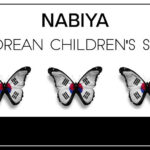“Mama’s Song” is a heartfelt expression of love, gratitude, and the poignant realization of becoming like the woman who raised you. This touching piece resonates with anyone who has ever looked at their mother and seen a reflection of themselves, understanding the depth of sacrifice and the enduring strength of maternal love. The lyrics unfold as a phone call, a direct and intimate conversation with “ma,” making the listener feel like a confidante to this personal moment of reflection.
The song begins with a simple yet profound statement: “Hey ma I’m just calling to tell you / That I’m doing just fine.” It’s a reassurance, a child’s instinct to comfort their mother, even as they are the ones seeking comfort in the realization that “the years go by we’re becoming more alike.” This isn’t presented as a negative; instead, there’s a sense of gentle humor and acceptance. “The younger me would’ve been embarrassed / But the older is tried and true.” This line speaks volumes about maturity and the shedding of youthful insecurities, embracing the very traits once perhaps resisted. The subtle joy is palpable as the singer admits, “Sometimes I catch myself and smile because I remind me of you.” This sets the stage for a deeper exploration of what it means to inherit a mother’s spirit.
The chorus elevates this personal reflection to a universal sentiment. “When I take the long way home / I sing like we used to do.” Music becomes a conduit to the past, a shared language of love and memory. Even distance cannot diminish this connection: “And even though you’ve moved far upstate / I’d like to think that you’re singing too.” This imagery is both tender and hopeful, suggesting a spiritual link that transcends physical separation. The core message of the song is then unveiled in the powerful lines, “Mama I am who I am and it’s all because of you.” This is the ultimate tribute, acknowledging the foundational role of a mother in shaping one’s identity.
Moving into the second verse, the tone shifts slightly to one of apology and acknowledgement of past burdens. “Hey ma I’m just calling to tell ya / I’m sorry for all the mess.” This isn’t just about untidiness; it’s a metaphor for the challenges and perhaps the heartaches of childhood. The line, “I know raising two kids on your own it ain’t easy / You did your best,” is a mature recognition of the mother’s struggles as a single parent. It’s a moment of empathy, stepping into her shoes and understanding the enormity of her task.
The bridge offers forgiveness and solace, not just for the singer but also for the mother. “Oh and before we hang up I just wanted to remind ya / That the fault is not yours to bare.” This is a crucial turning point, absolving the mother of any perceived guilt for the children’s pain or imperfections. “Danny and I may be broken but our mothers always there.” Despite life’s inevitable scars, the mother remains a constant, unwavering source of support and love.
The final verse is a beautiful culmination of growth and understanding. “Now lookin back on all the years gone by / I can see quite clearly now all you sacrificed.” Time and experience bring clarity, revealing the unseen sacrifices mothers make. “And you waited until we were grown to focus on yourself.” This line highlights the selflessness inherent in motherhood, postponing personal desires for the sake of children. The singer’s past selfishness is acknowledged: “I’d always been too selfish to care about anyone else but / Oh how the tables turn and now I am the one who sets it.” This is the full circle moment – the child now becomes the caregiver, understanding and emulating the mother’s nurturing role. “I’m taking care of my family and now I know where I get it.” The inherited strength and caregiving nature are recognized and celebrated.
The song concludes with a hopeful look towards the future and the cyclical nature of motherhood. “And maybe one day I will have a daughter of my own / And she’ll put me through the ringer but in the end she will know…” There’s a knowing anticipation of the challenges of motherhood, but also a deep faith in the enduring bond and eventual understanding between mother and child. The repeated lines “Mama I’m so proud to say that I’m taking after you / Mama I am who I am and it’s all because of you / I love you mom” serve as a powerful and emotional resolution, leaving the listener with a warm sense of familial love and appreciation for the profound impact of a mother’s love. “Mama’s Song” is more than just a song; it’s a heartfelt tribute to motherhood, a journey of growth, and a celebration of the unbreakable bonds that shape us.


